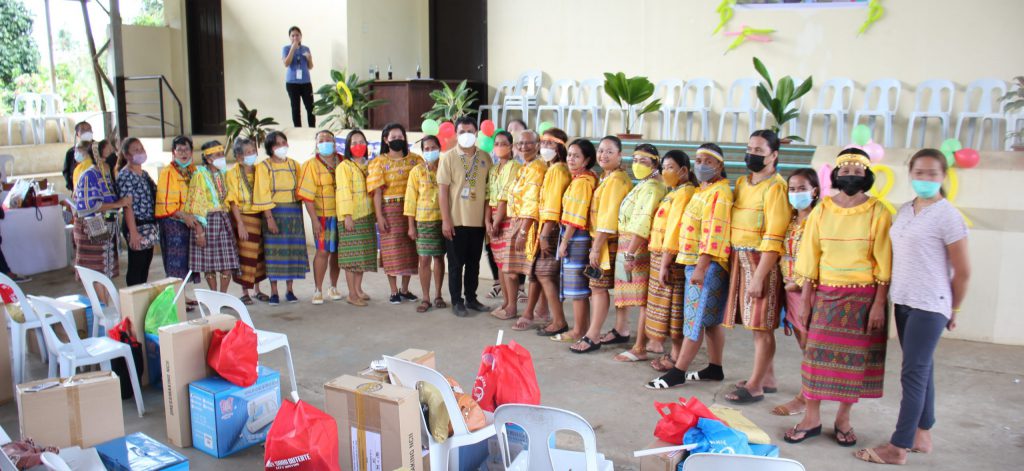TESDA XI Regional Training Center – Korea Philippines Vocational Training Center (RTC-KPVTC) Davao, in partnership with the City Social Welfare and Development Office (CSWDO), Davao and National Commission on Indigenous Peoples (NCIP) Davao, conducted a commencement exercises and distribution of toolkits to twenty-four out of twenty-five trainees of Dressmaking NC II qualification at Wangan National Agricultural School (WNAS) gymnasium last February 17, 2022 after 240 hours of training with Mr. Jo-jo A. Datulayta, RTC-KorPhil trainer.
The said event was represented by Ms. Gladies Mae G. Bactong, TESD Specialist II of RTC-KPVTC Davao, wherein she delivered her inspirational message addressed to the graduates of the above-mentioned qualification.
The Dressmaking NC II qualification consists of competencies that a person must achieve to enable him/her to draft and cut patterns; layout patterns on the material/fabric, sew material/fabric, and apply finishing touches on the ladies’ casual apparel of the garment sector.
Subsequently, it will equip the graduates with the skills needed for them to create and fabricate casual apparel such as casual dress, blouse, skirt, trousers, shorts, and culottes.
All trainees were scholars under the Special Training for Employment Program (STEP) program of TESDA in collaboration with the Local Government Unit (LGU) of Davao City.
The Poverty Reduction, Livelihood and Employment Cluster (PRLEC) headed by the Technical Education and Skills Development Authority (TESDA) has been going to far-flung communities in the country to empower residents through livelihood and other skills training.
In addition, the PRLEC is also one of the clusters under the National Task Force to End Local Communist Armed Conflict (NTF-ELCAC) that aims to develop self-reliant, productive, resilient, and sustainable communities through harmonized and culturally responsive development programs

